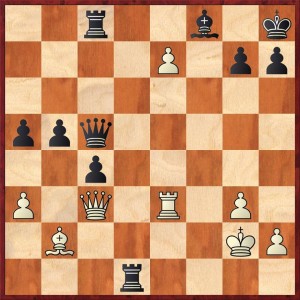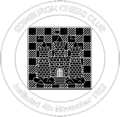I gave a talk at the club on 28th April on using computers to improve your game. Here are the key points:
Chessbase
- My database contains around 5 million games – this is probably fairly typical for CB Users.
- The latest games can be downloaded from the Week in Chess and added easily to the database.
- It is also possible to create a database of only Scottish tournament games. However, there is some cleansing required as names are inputted in different formats. The games can be found on the Chess Scotland website.
- Chessbase can be used to conveniently store and analyse your own games, top level games and openings you are interested in.
- You can search a particular opening position. Chessbase will return all games in the database from this position (this can be filtered too), what score each move has from the position, who the best players to play each move are and other stats.
- More advanced features are available, e.g. finding all games featuring a particular pawn structure.
Analysis Engines
- Engines can be purchased as stand alone piece of software (e.g. Fritz, Rybka, Shredder) or downloaded for free, to be run in Chessbase (e.g. Stockfish, Critter). An engine like Houdini was originally open source, but later versions are commercial. If you already have Chessbase, it probably makes most sense to use the free engines – they are all incredibly strong.
- There are other features available with the commercial software. For example, purchasing Fritz will give you 1 year’s free membership on Playchess.com (a site for playing online blitz games).
- Use the engines to analyse your own games (or top GM games you are studying). Make sure you analyse the variations you considered during the game as well).
- Trust the moves more than the evaluation. The evaluation can change as you go through a complicated variation. The other point is that the computer does not suffer from defending bad positions, and may assess a position as equal that humans would find extremely difficult to play. Houdini is particularly bad for this – chess after all is just a draw!
I showed some interesting examples. Here is one, from Think Like a Grandmaster. This book has generally stood the test of time quite well, and it is only in the computer era that the following improvement is possible:

1.e8Q and now not 1…Rex8? when 2.Qxg7+! Bxg7 3.Rxe8+ leads to mate. Black should instead play 1…Rd2+! Now taking the Rook allows Black to take the Queen on e8 safely, so White must play 2.Kh1. Here the author recommends taking the draw with 2…Rd1+. However, Black has 2…Rxb2! There are a number of wonderful variations, e.g. 3.Qce5 Rxe8 4.Qxc5 Rd8! or 3.Qee5 Rb3! 4.Qxc5 Bxc5. Use an engine to check them out!
